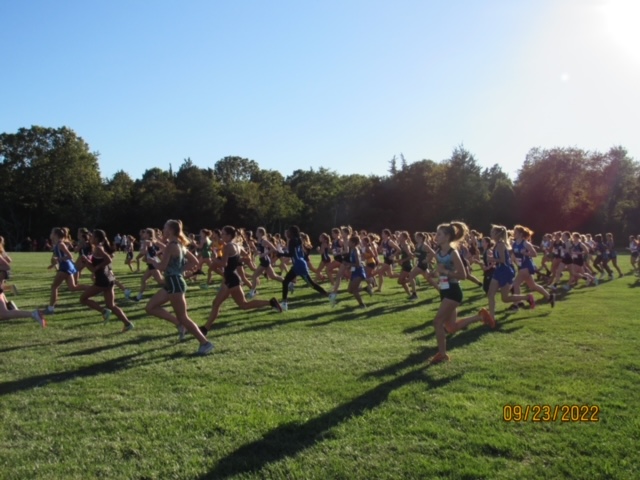The Importance of Nutrition for Athletes
The well-conditioned (both athletically and nutritionally) varsity racers took on the Stockton University Osprey High School Invite on September 23rd
For years, the stigma has existed. Some of us have engraved it into our minds. Staying healthy to a lot of people means eating low-calorie. It means limiting the food groups you consume. For athletes, in particular, the truth carries much more weight.
In general, eating low-calorie doesn’t always mean eating healthy. For example, you could eat a low fat yogurt with only 60 calories, or a greek yogurt with 120 calories. Greek yogurt has much more nutrients than the low fat yogurt. While the low fat yogurt is low in calories and fat, it’s higher in sugar and lower in protein. This is just one example of how filling foods are better for your body.
So, why is this important for athletes? According to Dana Ryan from I am Herbalife Nutrition, carbohydrates are the most important food for athletes. “Carbohydrates are the main source of energy for our brains and are the fastest way for our bodies to produce energy.”
She made points to say that carbs fuel the brain and muscles, prevent muscle breakdown, boost performance, and speed up recovery from injuries. “While the needs will vary based on the individual and the type of exercise or sports they engage in, carbs will always make up a majority of calories.”
As an athlete myself, this has proven true for me. I run cross country and track. Last year, I noticed significant changes in my body that I saw as negative. In response to that, I started dieting. I would only eat low-calorie foods and stay under a certain amount of calories each day.
While I started to feel better about myself, it was also during my track season. I noticed my performance at practices and meets started to get worse. I didn’t have enough energy and I started to falter in some of my classes. I didn’t end the school year with a good GPA. My mental health was horrible.
After a talk with my coach at the beginning of this season, I realized that the eating habits I’d been displaying were not acceptable. I talked to my mom about eating a more balanced diet. Later we went out to buy foods that were high in protein and had a good amount of carbs.
Now, only because I changed my diet, my life has had many changes too. I started doing really well in my sport, getting good grades, and I’m much more focused and happier.
I asked my cross country and track coach, Michael Tangeman, his thoughts on proper nutrition for athletes. “It is even more critical for young athletes, as they are burning up a large chunk of their caloric intake through their sport of choice.”
He stressed that it’s easy for young athletes to disregard replacing the calories they expend during exercises and that doing so requires a lot of personal effort. “In the end, it is well worth it though, as overall health and athletic performance will improve.”
In reality, calories don’t matter. It’s the contents of the food you consume that really count. There aren’t many health advantages to eating primarily fruits and veggies for every meal. Eating meals that contain various dietary types, such as protein and carbohydrates, does.
Even though consuming wholesome foods is crucial for everyone, it is more crucial for athletes. Anyone can benefit from eating substantial, healthy meals in their daily lives. So the next time you prepare a meal, think about how it will affect your health. Does it include all the components your body requires to function properly?











